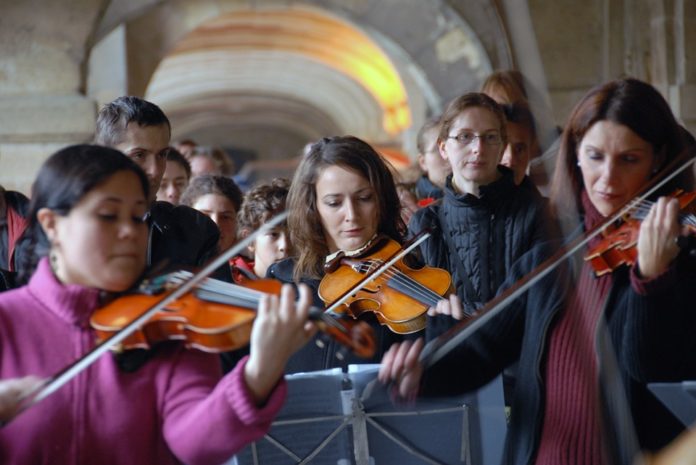The power of natural forces—sublime, capricious, life-supporting and life-destroying—has been an inspiration to artists probably ever since there has been art. The effects and phenomena of the atmosphere, with its movement of air and cycles of water, is a durable focus of fascination.
Robert J. Martin’s Embrace the Wind! (Ravello RR7942), performed by the Enkidu String Quartet, is a program suite of string quartets inspired by wind as experienced or imagined, and by wind-driven technologies. While each of the sixteen parts is intended to be illustrative of wind-related phenomena, vignettes or machines, the work can be enjoyed in purely musical terms. Martin favors an often dramatic, restless rhetoric that draws on the history of writing for string quartet. The seven interludes for solo or paired strings serve as well-placed transitions linking the sections for full quartet.
Wind Power is one of the pieces on Scott Brickman’s 96 Strings and 2 Whistles (Ravello RR7940), a collection of chamber music for flute, cello, viola and piano in different combinations. Wind Power, a one-movement piece scored for flute (Suzanne Gilchrest) and piano (Beth Levin), is generally more circumspect in mood than Martin’s more turbulent music about wind, but like the other pieces on 96 Strings and 2 Whistles, which apply a lyrical grammar to a modern vocabulary of twelve-tone and octatonic pitch collections, it sets melodic continuity within sympathetically dissonant chording. With the four-part Divertimento for cello (Matt Goeke) and piano, and the four-part Partita for viola (Ina Litera) and piano, Brickman uses tempos and meters to allude to Baroque models while maintaining the modernist substance of chromatic pitch sets and dissonant harmonies.









